Are you looking to modify the access to your property? Whether you're considering a new gate, a fence adjustment, or simply need to change the entry points for maintenance reasons, this process can seem overwhelming. But don't worry; we're here to guide you through every step of the way. Stay with us as we delve into useful tips and clear templates to streamline your property access modification journey!
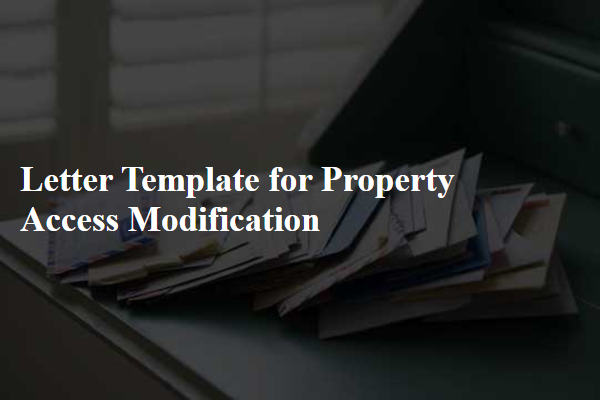
Purpose of Access Modification
Access modifications in property management are often necessary for enhancing accessibility, improving safety, or accommodating renovations. For example, the installation of ramps can facilitate wheelchair access, adhering to the Americans with Disabilities Act (ADA) standards. In residential areas such as Springfield, residents may request alterations to ensure compliance with local building codes, particularly in structures built before 1990. Additionally, modifications might be executed to meet the growing demand for smart home technology, requiring adjustments to electrical outlets and data wiring. Ensuring that these changes align with both homeowner association regulations and safety guidelines is crucial for maintaining property value and resident satisfaction.
Property Details and Identification
In property access modification requests, it's essential to specify distinct property details for efficient processing. Typically, include elements such as the property address (50 Oak Street, Springfield, USA), the property type (single-family home, condominium), and any relevant identification numbers like the property tax ID (123-456-789). Clear delineation of ownership (John Doe, rightful owner) and any current access limitations (gate locked, restricted hours) helps expedite approvals. Additionally, state the desired changes (granting access for maintenance, updating access codes) to provide clarity. Providing a brief history of previous access arrangements (last modification date, past requests) can assist authorities in understanding the context of the request.
Specific Modification Description
Property access modifications often involve adjustments to entry points, such as doors, gates, or walkways, to enhance functionality and safety. For instance, a wheelchair ramp (minimum slope ratio of 1:12) might be added to the main entrance of a residential building located at 123 Elm Street, allowing individuals with mobility challenges to enter easily. Additionally, the installation of wider door frames (minimum width of 32 inches) ensures sufficient passage for mobility aids. Alterations could also include the replacement of uneven pavement with non-slip material to reduce the risk of falls. Furthermore, smart locks capable of remote access (Bluetooth-enabled) could be installed on entrances for increased security and convenience. These modifications not only improve accessibility but also increase property value and compliance with ADA (Americans with Disabilities Act) standards.
Contact Information for Queries
Property access modification requests often require detailed contact information for seamless communication. Providing specific entities such as the property management company (e.g., ABC Realty Inc.), individual property manager (e.g., John Doe), phone number (e.g., +1-800-555-0123), and email address (e.g., john.doe@abcrealty.com) enhances clarity. Clear delineation of operation hours (e.g., Monday to Friday, 9 AM to 5 PM) allows clients to know when they can reach out for queries. Additionally, offering a physical address (e.g., 123 Main St, Suite 456, Springfield, IL) fosters trust and transparency, ensuring individuals feel comfortable contacting the entity for any modifications required regarding property access.
Consent and Authorization Process
Property access modification requires a thorough consent and authorization process to ensure legality and transparency. Homeowners must first review relevant regulations in their local jurisdiction, such as zoning laws or homeowner association guidelines. Next, a written consent form, detailing the specific modifications sought, should be prepared for all affected parties, including neighbors and property management, if applicable. Individuals involved must sign the document, indicating their agreement. After gathering signatures, submit the form to the appropriate municipal authorities, such as the city planning department, along with any necessary permits. The timeline for approval can vary, often taking several weeks, depending on the complexity of modifications and regulatory requirements. Documentation of all communications and approvals is crucial for future reference and to avoid potential disputes.

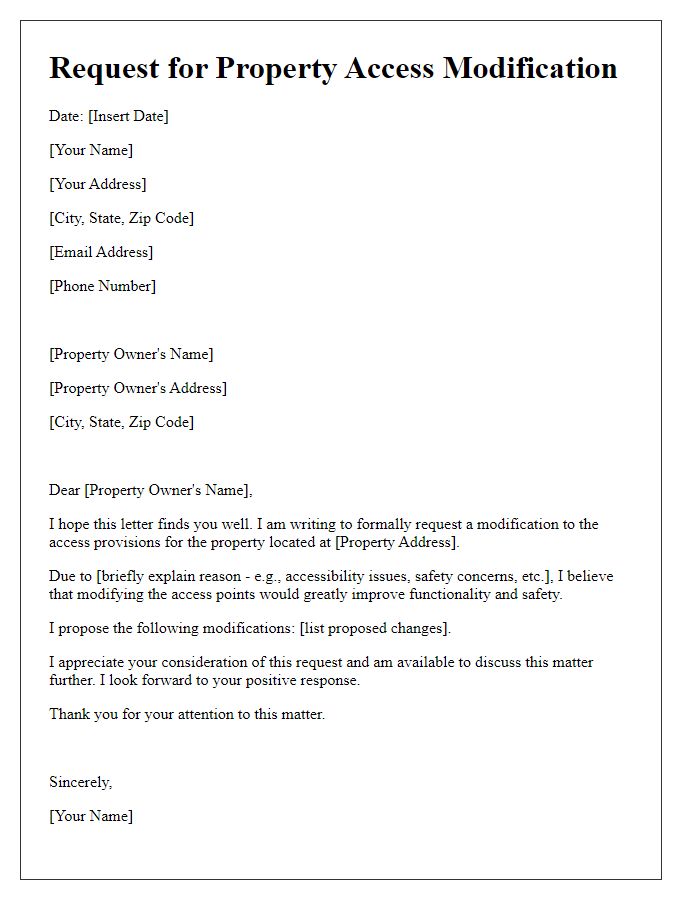
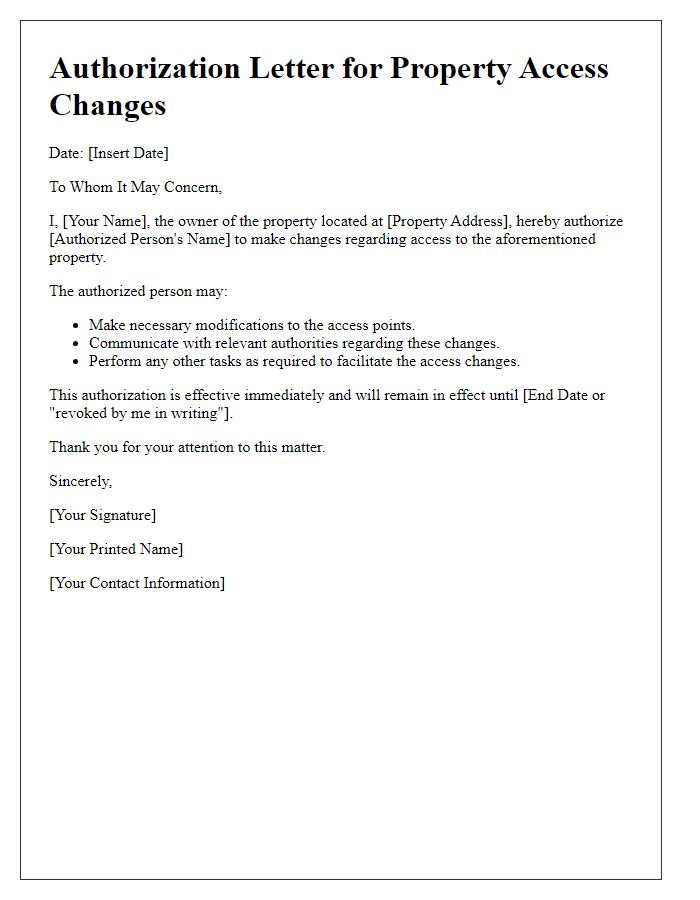
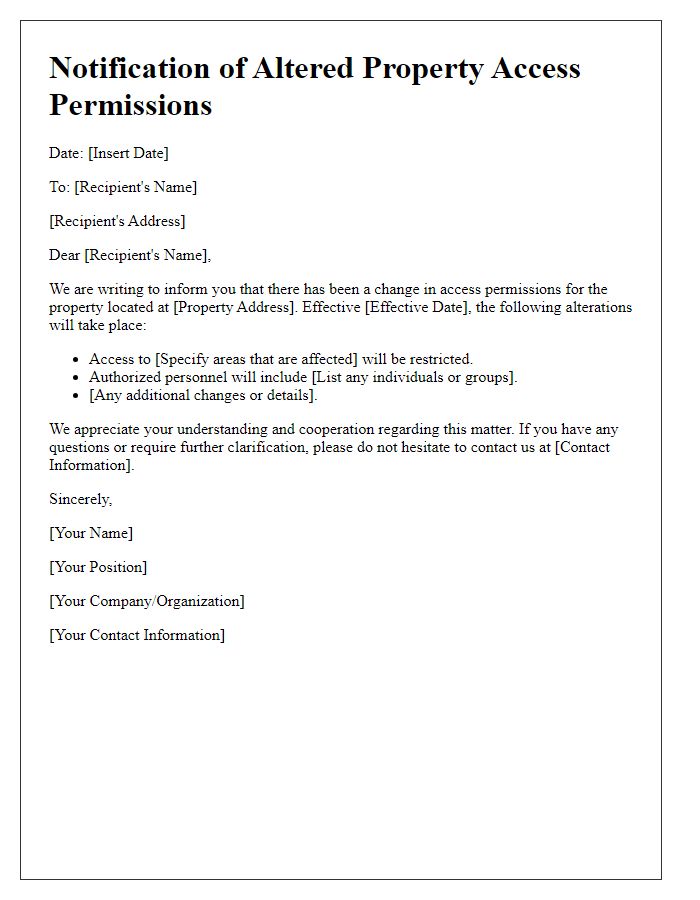
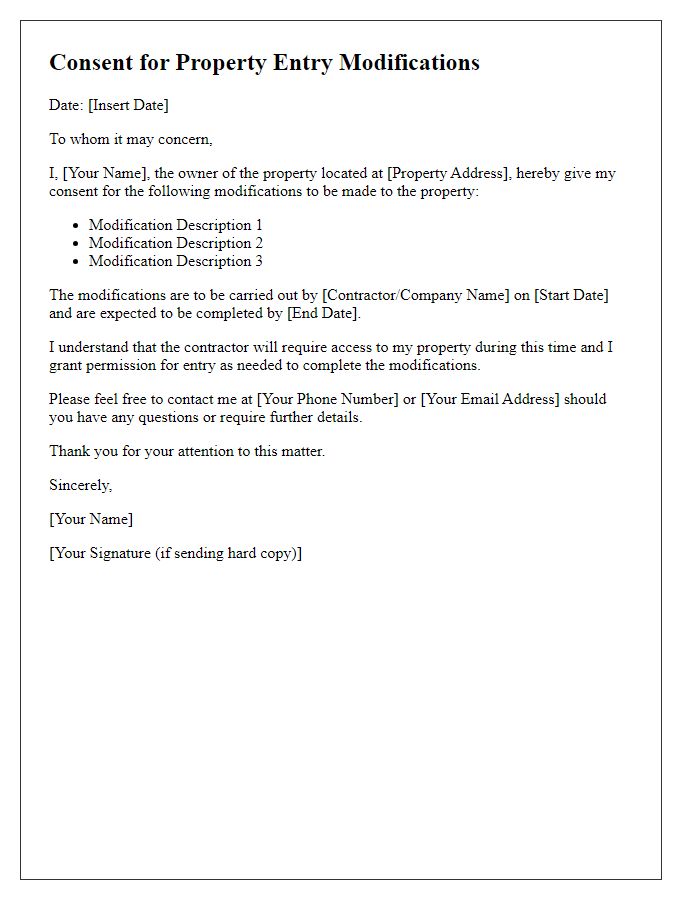
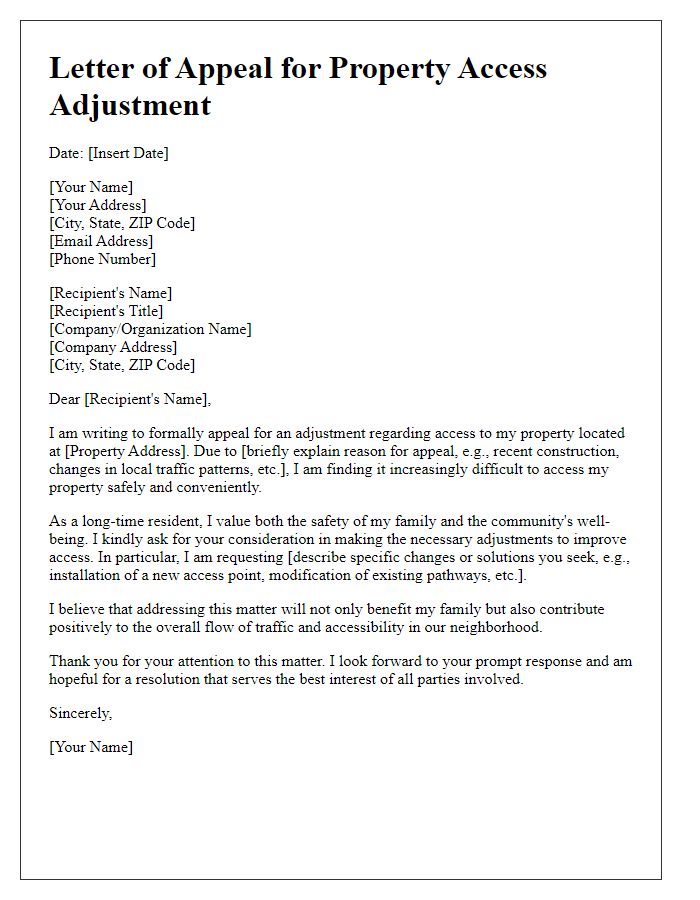
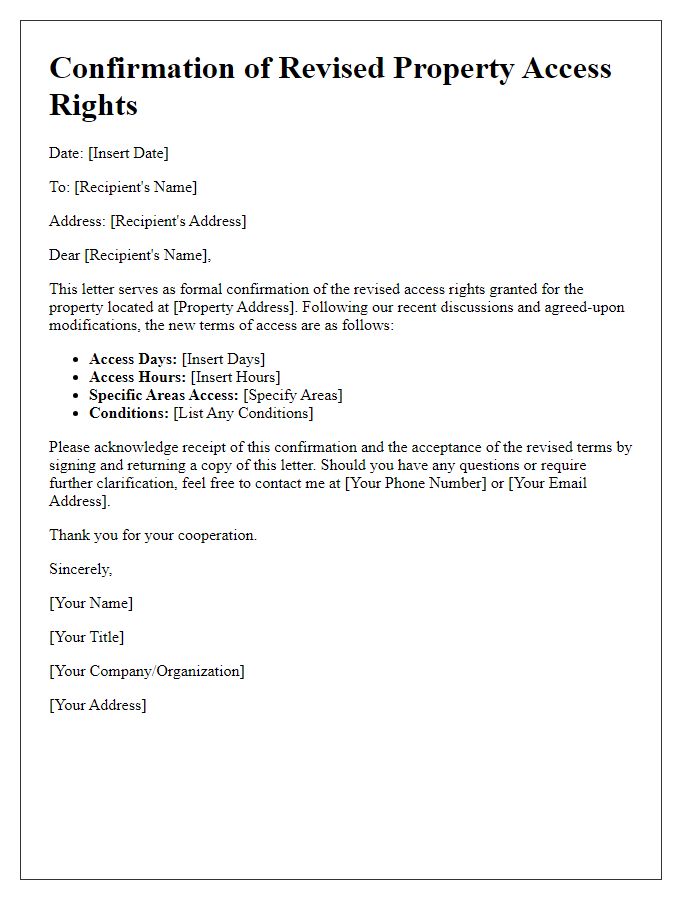
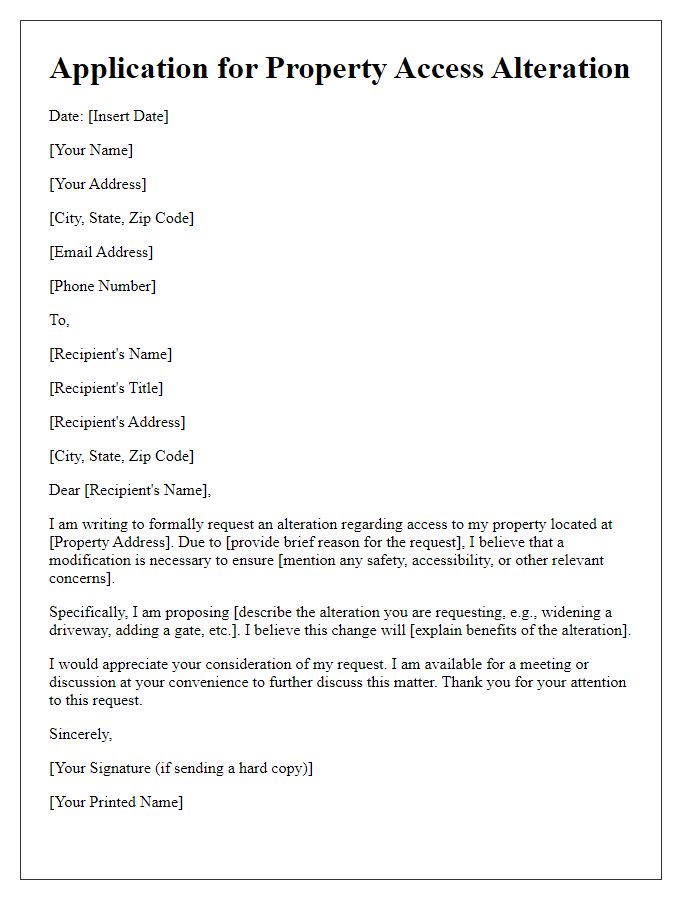
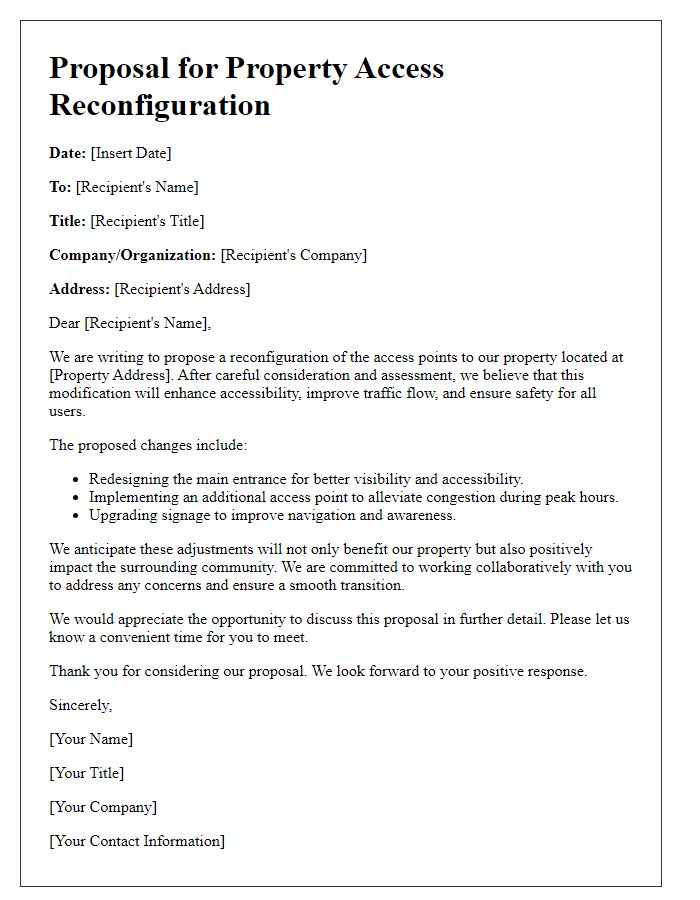
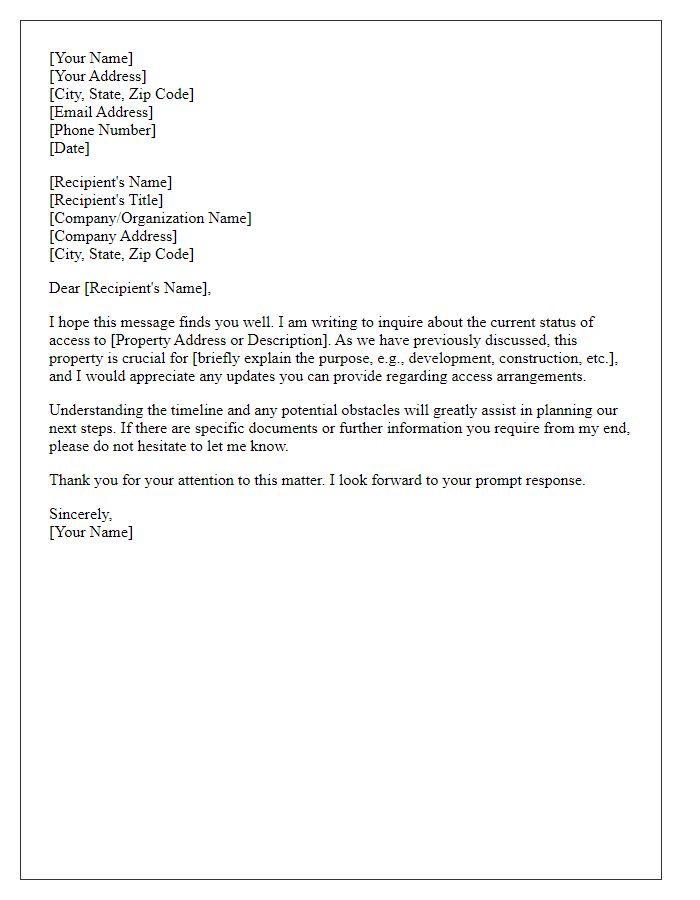
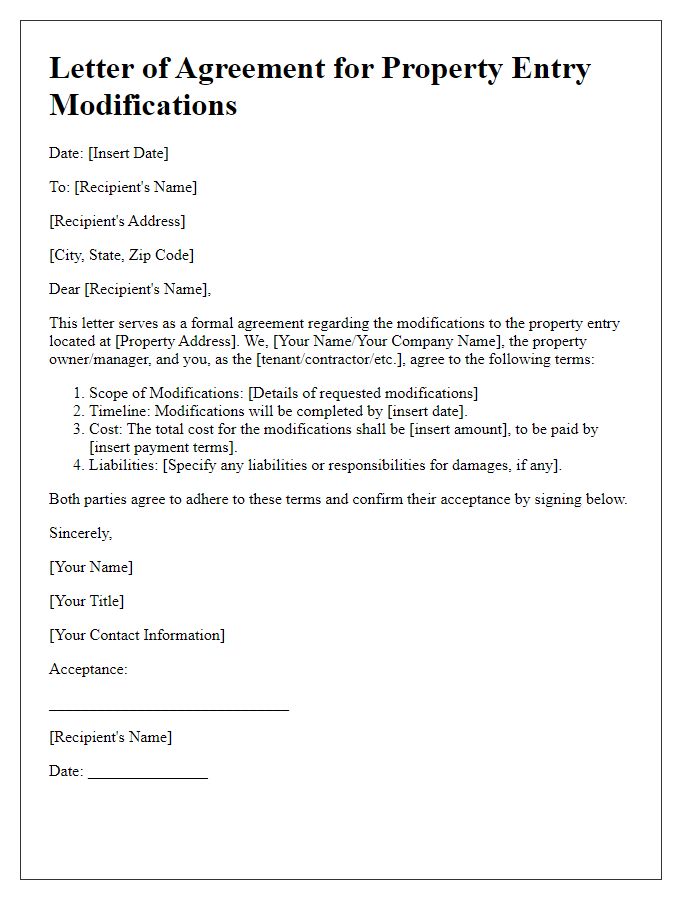


Comments